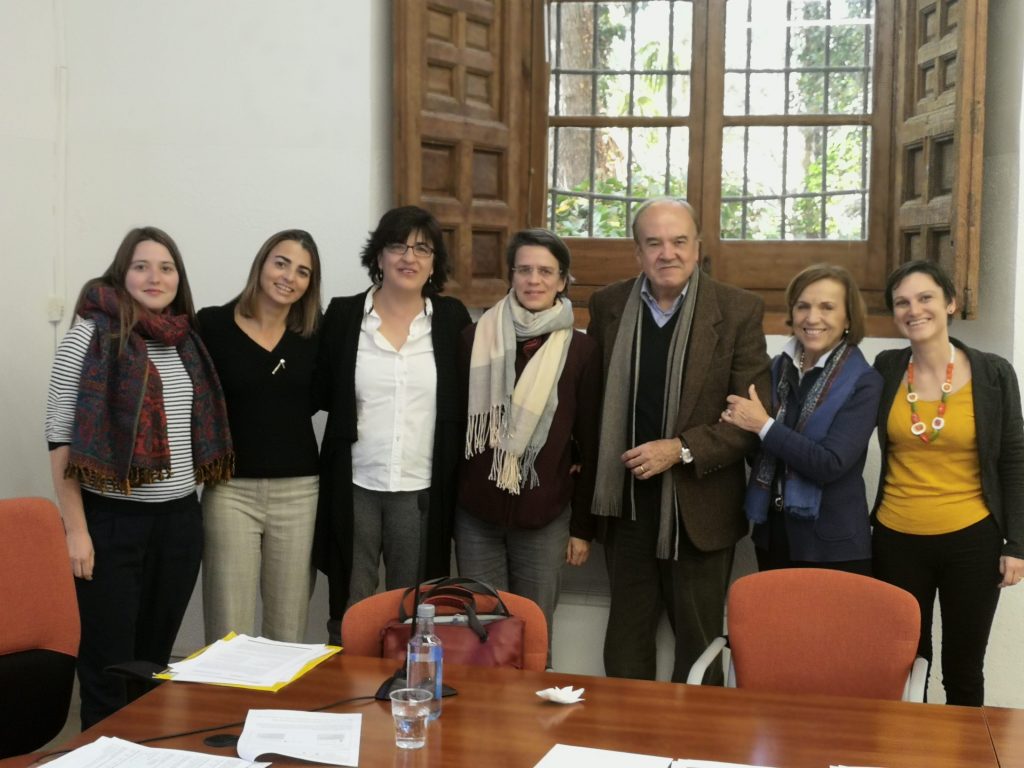December 2018
RECENT OUTPUT
CIRCLE WP n. 3 “A simple subgroup decomposable measure of downward (and upward) income mobility” by Elena Bárcena, Olga Cantó
Work Package 2: Intergenerational insurance of income and care risks; Task 2.1: The changing patterns of income mobility by age cohorts in EU countries
Abstract
We propose a subgroup decomposable class of income mobility measures with good axiomatic properties by adapting the concept of “individual income gap between two moments in time” to a framework that is traditionally used in the measurement of poverty and deprivation. This framework is explicit in incorporating the necessary judgements about how to aggregate individual income gaps by making use of the indices with best normative properties within the poverty literature. This strategy allows us to provide intuitive and simple measures of downward (and upward) mobility that consider incidence, intensity and inequality of income gaps and are easy to comprehend and communicate to policy makers. Moreover, these measures are consistent with a simple and intuitive graphical device. As an empirical illustration of the use of this class of measures, we present an analysis of downward income mobility for different age groups in three EU countries using the European Union Survey of Income and Living Conditions (EUSILC) longitudinal data from 2004 up to 2015.
Presented at IARIW 35th General Conference, Copenhagen, Denmark, August 2018; VI Equalitas workshop, Universidad Complutense de Madrid, Madrid (Spain), October 2018; SAEe (Simposio de Análisis Económico), Madrid (Spain), December 2018; Conference “Equal Chances: Equality of Opportunity and Social Mobility Around the World”, Bari (Italy), December 2018
CIRCLE WP. N 4 “Size and distributional pattern of pension-related tax expenditures in European countries” by Salvador Barrios, Flavia Coda Moscarola, Francesco Figari, Luca Gandullia
Work Package 1: Intergenerational redistribution of resources; Task 1.3: Revenue and distributive effects of pension tax expenditures
Abstract
Policy discussions on pension systems generally focus on their sustainability and design, including retirement age, income reference and contributory period, with relatively little attention devoted to the tax treatment of pension contributions and pension benefits. However, tax expenditures—defined as deviations from an agreed benchmark tax system—are widely used in EU Member States, and little is known about their fiscal and distributional impact. This paper quantifies the fiscal and distributional impact of tax expenditures related to public and private contributory pension schemes, affecting both contributions and pension benefits, in 28 European countries using EUROMOD, the EU-wide microsimulation model. We find that pension-related tax expenditures can have a sizeable impact on revenue and strong effects on inequality and poverty. Tax expenditures tend to be progressive on two levels: first, among pensioners, by favoring those with lower incomes, mainly as a result of the preferential treatment given to pension incomes; and, second, among people of working age, through a partial or no deduction of pension contributions, draining resources from those at the top of the income distribution. Moreover, embracing a lifetime perspective, tax expenditures tend to redistribute resources in favor of women and low educated individuals.
Presented at: IMA Conference (June 2017), Workshop “Household Finance and Retirement Savings“, October 2017, workshop: “Cost-Benefit Analysis of Tax Expenditures and other Revenue Measures”, Center of Excellence in Finance Ljubljana, Slovenia, 20th Workshop on Public Finance, Bank of Italy, JRC Fiscal Policy analysis seminars (June 2018)
CIRCLE WP N. 5 “Solidarity between generations in extended families. Direction, size and intensity” by Gerlinde Verbist, Ron Diris, Frank Vandenbroucke
Work Package 2: Intergenerational insurance of income and care risks; Task 2.2: Patterns in household living arrangements: cohorts cohabitation in EU countries
Abstract
We analyse intergenerational solidarity within multigenerational (MG) households, and assess how the formation of these households is related to poverty across European countries. Using data from EU-SILC 2013, we first assess to what extent financial gains of the formation of the MG households are pro-child, pro-elderly or to the benefit of all. Next, we determine how the prevalence of MG households relates to poverty risks, and especially how (the sharing of) elderly income impacts child poverty. We analyse (1) the direct relationship between living in a MG household and child poverty using a logistic regression and (2) the contribution of elderly income to lowering child poverty risks, under different scenarios of cost-sharing and resource-sharing using a pre-post analysis. The results indicate that the formation of MG households operates mainly as solidarity from older to younger generations. Although not designed for this purpose, pensions thereby also serve as a function to alleviate child poverty in these countries where MG households are most prevalent.
Presented at the 25th International Research Seminar on Issues in Social Security, FISS, Sigtuna, Sweden, June 6-8; ESPAnet conference, Vilnius, September 2018
CIRCLE Policy Brief n. 2: “Measuring the incidence, intensity and inequality of income losses (or gains) by age groups”
A summary of the research findings and recommendations from CIRCLE WP N. 2
WORK IN PROGRESS
Pension reforms and intergenerational conflicts: What is the role of information and education strategies? (TASK 3.1: Information and education strategies to avoid intergenerational conflicts)
Under the threat of the financial crises, many European countries underwent through radical reforms of their pension systems. These reforms have been undoubtedly successful in recovering the financial sustainability, but they also met the strong opposition of large groups of the population, including young individuals who were actually supposed to gain from them.
This task aims at exploring the underlying reasons of this evidence and proposing strategies to help European countries avoiding intergenerational conflicts while facing challenging ageing process and weak public finance sustainability. The harsh opposition faced by the reforms make politicians very reluctant to undertake them, even though in most countries population ageing makes it urgent to reform the pension system. Thus, exploring the reasons behind voters’ opinions about the pensions system and the feasibility of pension reforms is topical in the public debate of most European countries.
SHARE data are particularly convenient for this purpose for several reasons: first, focusing on the sample age-span that we want to explore, they ensure a particularly large sample size that is key to allow exploring the presence of heterogeneous effects over subgroups of the population. Furthermore, SHARE data contain important individual characteristics that are fundamental to control for in our analyses, in order to reduce at most the risk of omitted variable bias when estimating our relation of interest. In particular, information about household composition and characteristics, individual socio economic and marital status, labour market history, health status, preferences over retirement make SHARE particularly attractive to answer our research question.
The complexity and multidimensionality of the research question, however, requires integrating the standard SHARE questionnaire with an ad hoc drop-off questionnaire to define our variables of interest. To this purpose, the CIRCLE team, in collaboration with the SHARE central team and the SHARE national teams, proposed a new drop-off questionnaire of the SHARE survey in Belgium, Italy and Spain. The drop-off questionnaire has been tested over the summer and it will go into the field in 2019!!!
EVENTS
CIRCLE team meeting | Alcalá, 30 November 2018

The second meeting of the CIRCLE research team took place on November 30, 2018 at the University of Alcalá. Representatives of each national team attended the meeting; Manos Matgasanis participated as scientific committee member.
Before the team meeting, Elena Bárcena, Olga Cantó, and Gerlinde Verbist presented the CIRCLE new papers in an open seminar, followed by a talk by Elsa Fornero on “Financial Literacy and Pension Reforms”.
The team meeting was devoted to the discussion of outputs in Task 2.1 and 2.2 as well as of ongoing research in Task 3.1. The team also discussed the next deadlines as well as the administrative difficulties faced by Spain and Italy in receiving the expected funding.
Prof. Luis Moreno, member of the JPI Scientific Advisory Board, has been recently appointed as liaison person between JPI and the CIRCLE team; he attended the Alcalá meeting and will provide valuable feedback on the project in the coming months.
Download CIRCLE newsletter n. 3

